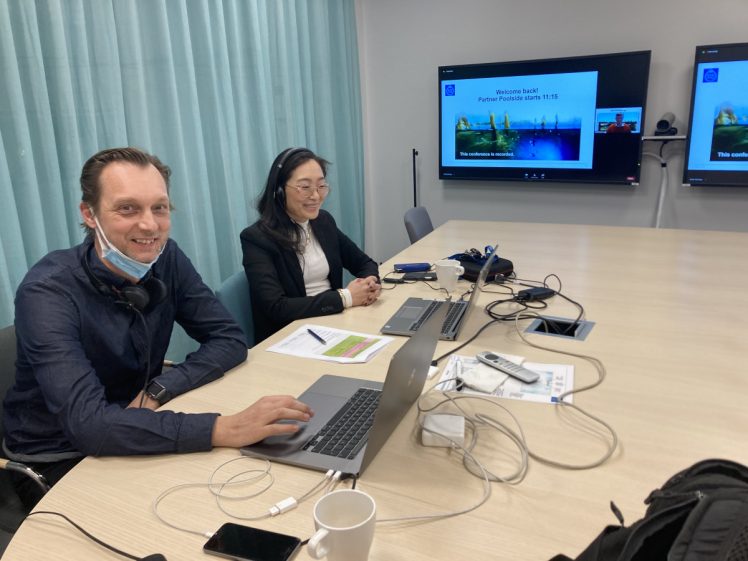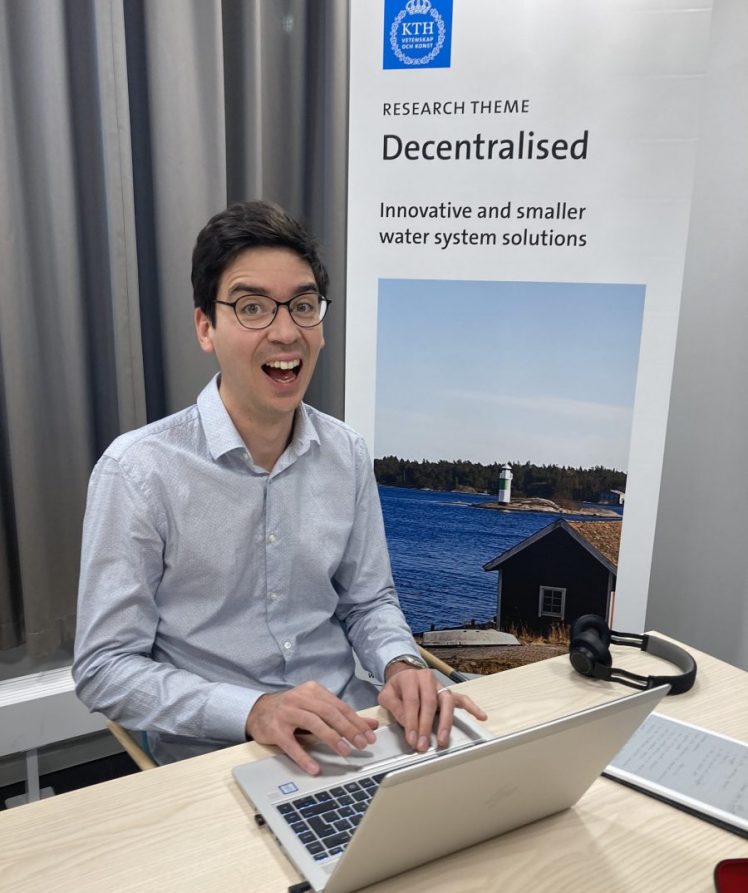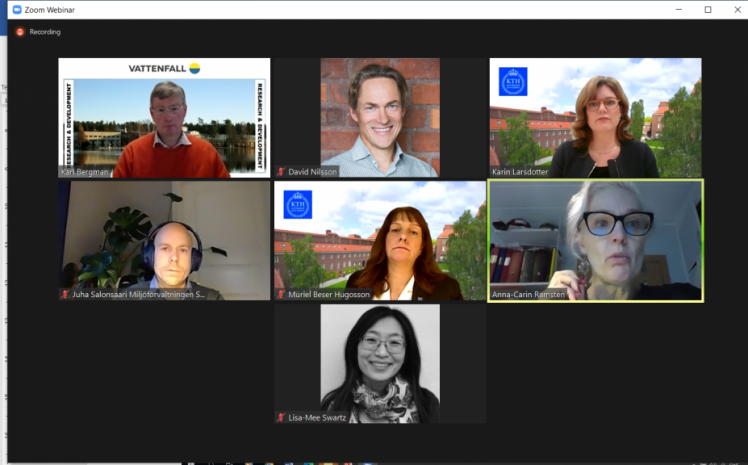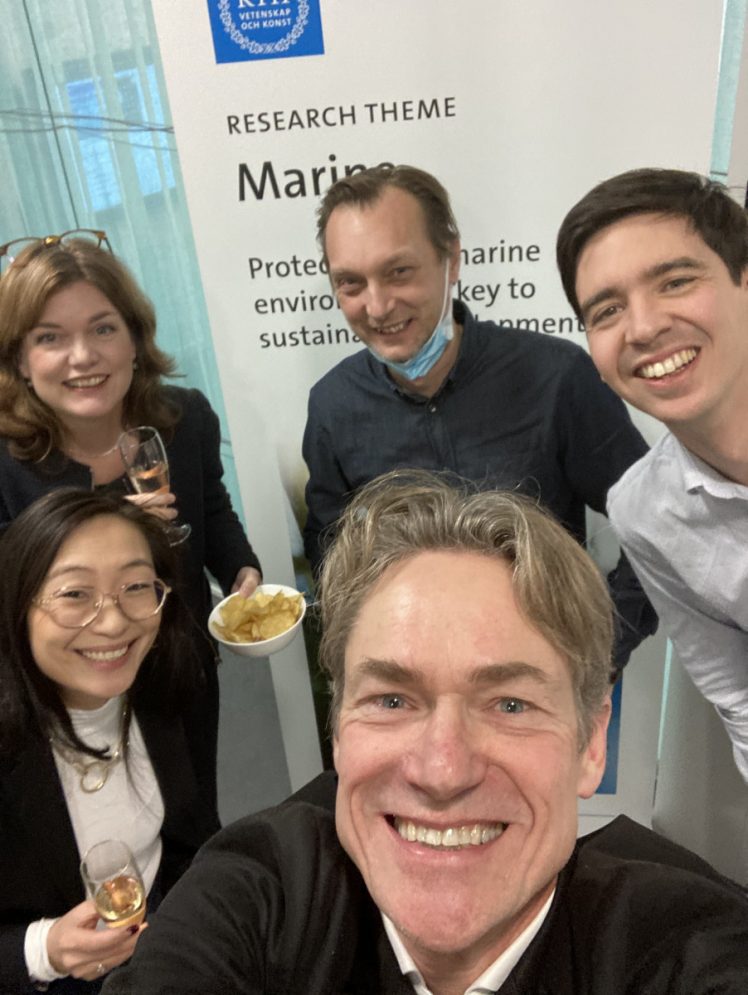The WaterCentre@KTH has already existed for four years. Wow, time flies! To mark the ending of our first mandate period, we had decided to organise a water conference showcasing research, water innovation and collaboration at KTH. That was before the new Corona pandemic struck…
Already back in January this year we drew up plans for a Conference in December. We – the “core team” at the WaterCentre – wanted to have a full science and innovation event, with lots of interaction, parallel sessions with paper presentations, partners dialogues, workshops, complete with dinner party and late-night dancing afterwards!

We all know what happened after that. Yet, for the entire spring we still believed that the virus would have receded by December. By May we had booked venues at KTH Campus, secured our international Key Note speaker, and invited for papers. But this virus wasn’t easily dealt with and after summer we realized the fact of the matters; if we wanted to make a conference it had to be digital. As if there weren’t enough digital meetings already…
Now we can look back at a successful conference although in a format quite different from what we had envisaged. Within just three hours we learnt and interacted across disciplines and across professional fields all from the comfort of our desks (or sofas and armchairs).
After the nice words of welcome by our Vice President Annika Stensson Trigell, we all enjoyed a remarkable Key Note address by Prof. Dr. Janet Hering, the Director of one of the world’s leading water research institutes, EAWAG in Switzerland. Janet stressed that science is not enough if we are to meet the global goals on sustainable development and therefore, we need to make our research “actionable”. The following Q&A also revealed that while many researchers want their results to have an impact in society, a majority also need more support from their organisations in doing that.
The ensuing Science Fountain showered the participants with water knowledge. In three parallel sessions, 22 KTH researchers delivered speed talks in areas spanning from decentralised hypochlorite production and Artifical Intelligence, via algae-cultivation, to arts and history. Yet – all about water! All presentations here.

Science is not enough – as we heard from Janet Hering – and the final part of our conference we devoted to a discussion on “How to make collaboration meaningful”. Much thanks to a skillful moderation by our colleague Karin Larsdotter, it was a fantastic display of what is required to make collaboration between academia and societal partners work.
To start with, a partnership has to be a two-way relationship and academic actors need to listen more attentively. As Karl Bergman – head of R&D at the energy company Vattenfall – put it: “You often invite us to be part of new R&D projects. But why don’t you ask us more often what our problems are?” At the same time, industrial actors might want to push universities to produce engineers tailor-made for their needs. But it is more important that we give our students robust knowledge for the entire job market, said Muriel Beser Hugosson, head of the School of Architecture and Built Environment at KTH. Juha Salonsaari from the Environmental Department at City of Stockholm, stressed that a multitude of interaction arenas and a wide network really are keys for starting successful collaborations. In fact, argued Anna-Carin Ramsten from the government agency Vinnova, informal meeting points are often under-estimated in collaboration. Maybe we just need “go and take a fika with someone”.

The entire conversation – which was very lively despite none of the panelists sitting in the same room – can soon be found on the WaterCentre webpage, along with the recording of all the sessions, and the Key Note. Presentation slides are also downloadable from the web.
On the whole, we had an intense and very fruitful conference. Our sincere thanks goes to all the participants, and all the speakers, for joining us in the water. We can all agree that we miss the physical meetings. But digital interaction also has its qualities, and we are rapidly getting better at it!
As for the party: well, who knows – it might still happen. Meanwhile, please enjoy this brand new report for the WaterCentre@KTH 2017-2020. I promise, it is a small carnival in itself!



One thought on “A Water Conference in spite of Corona”
Comments are closed.